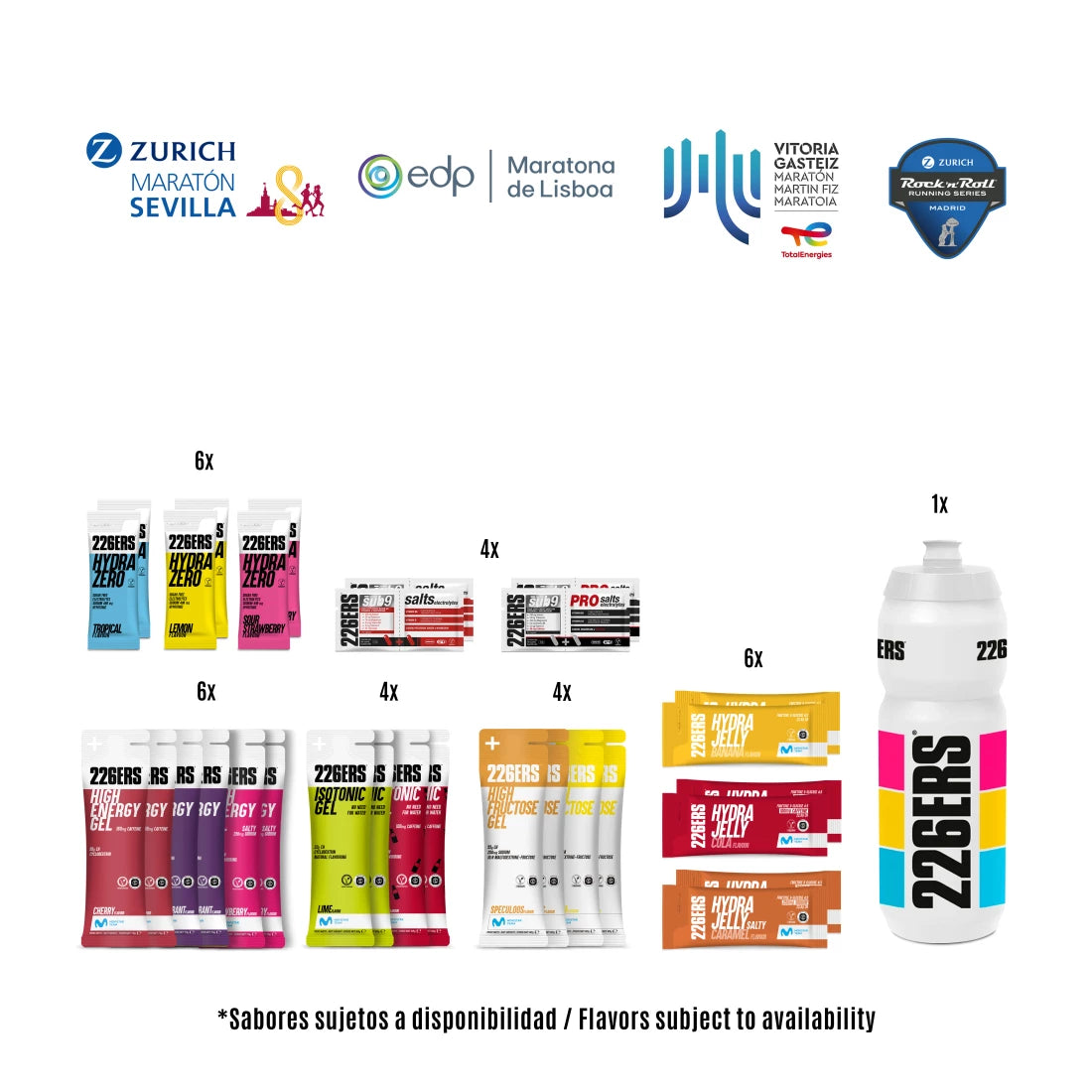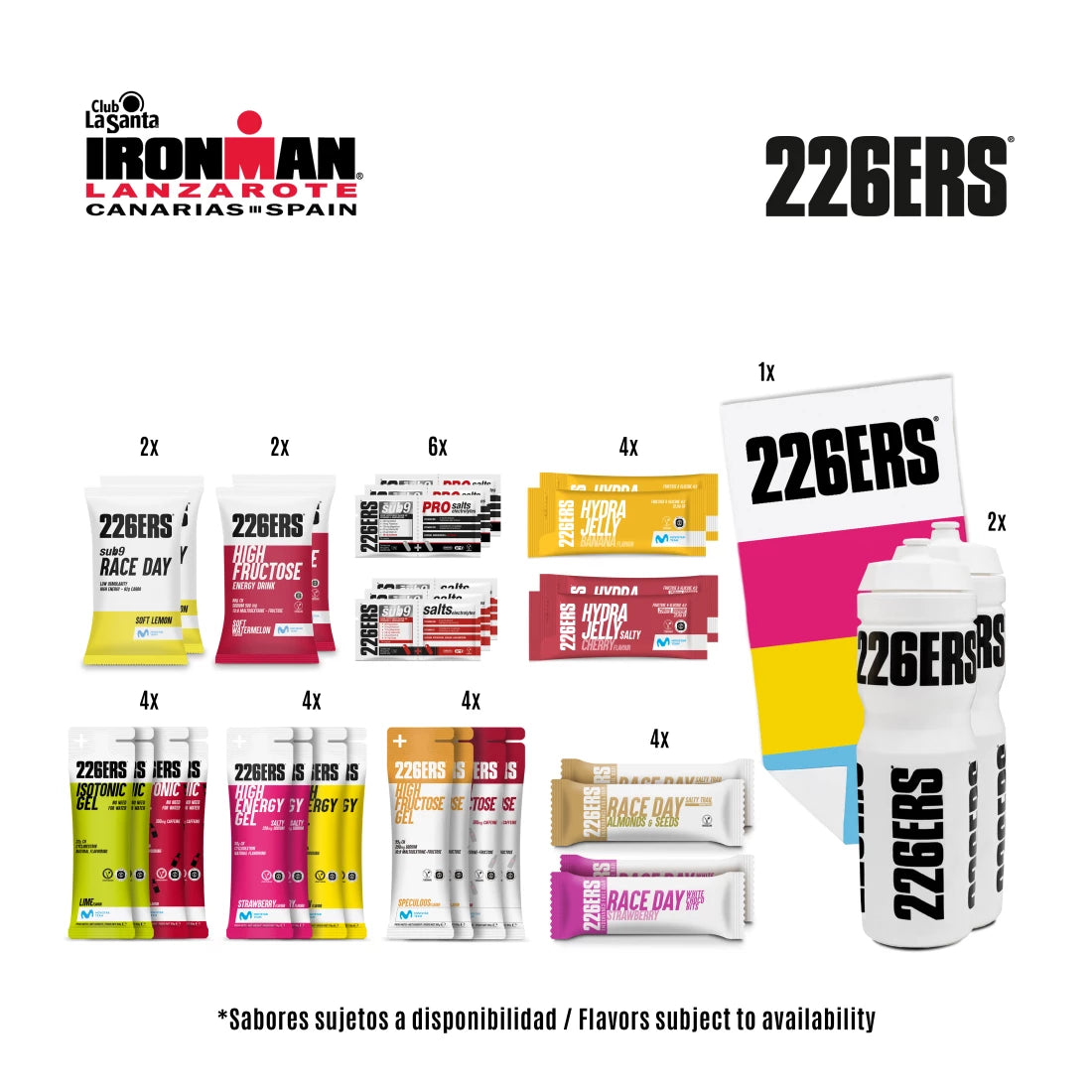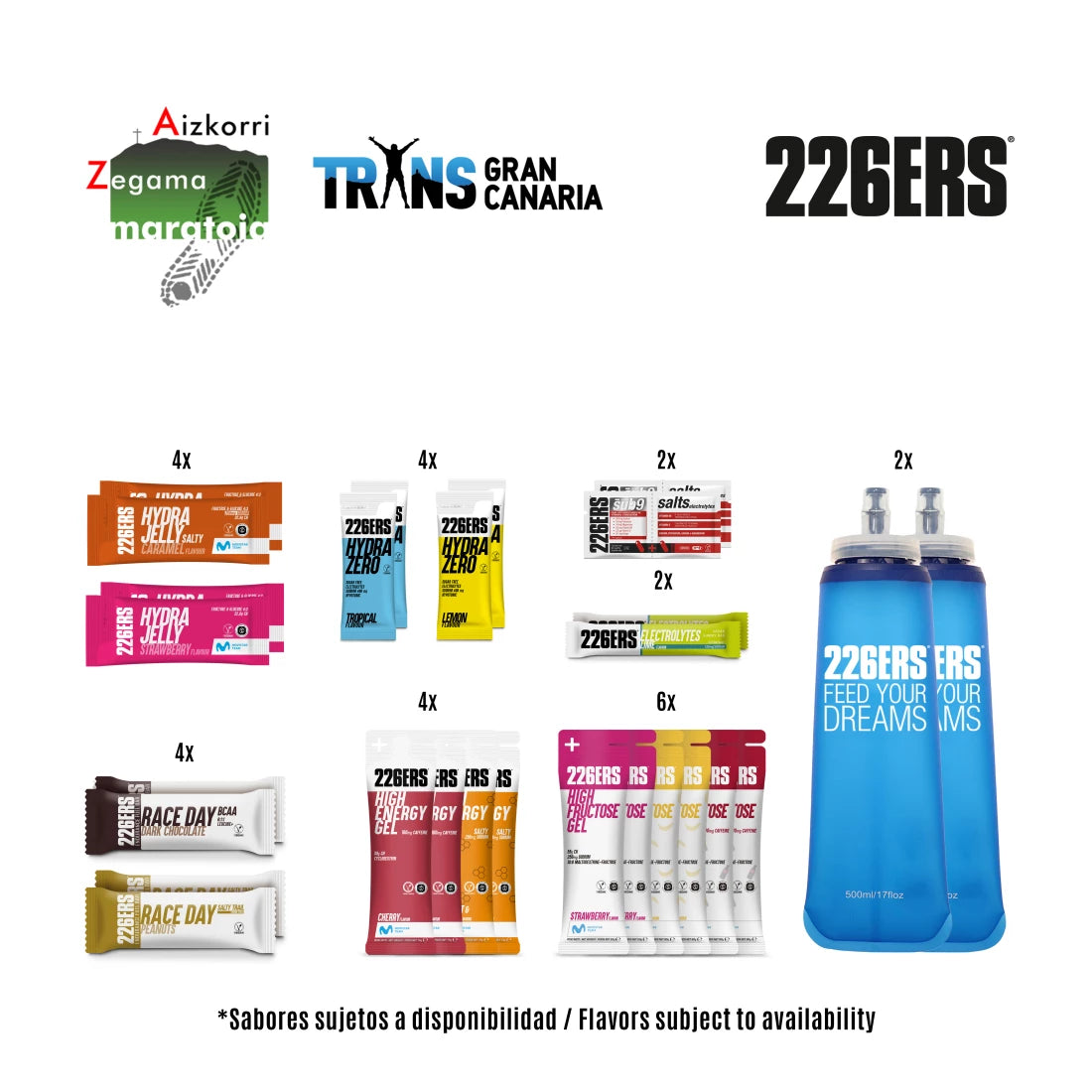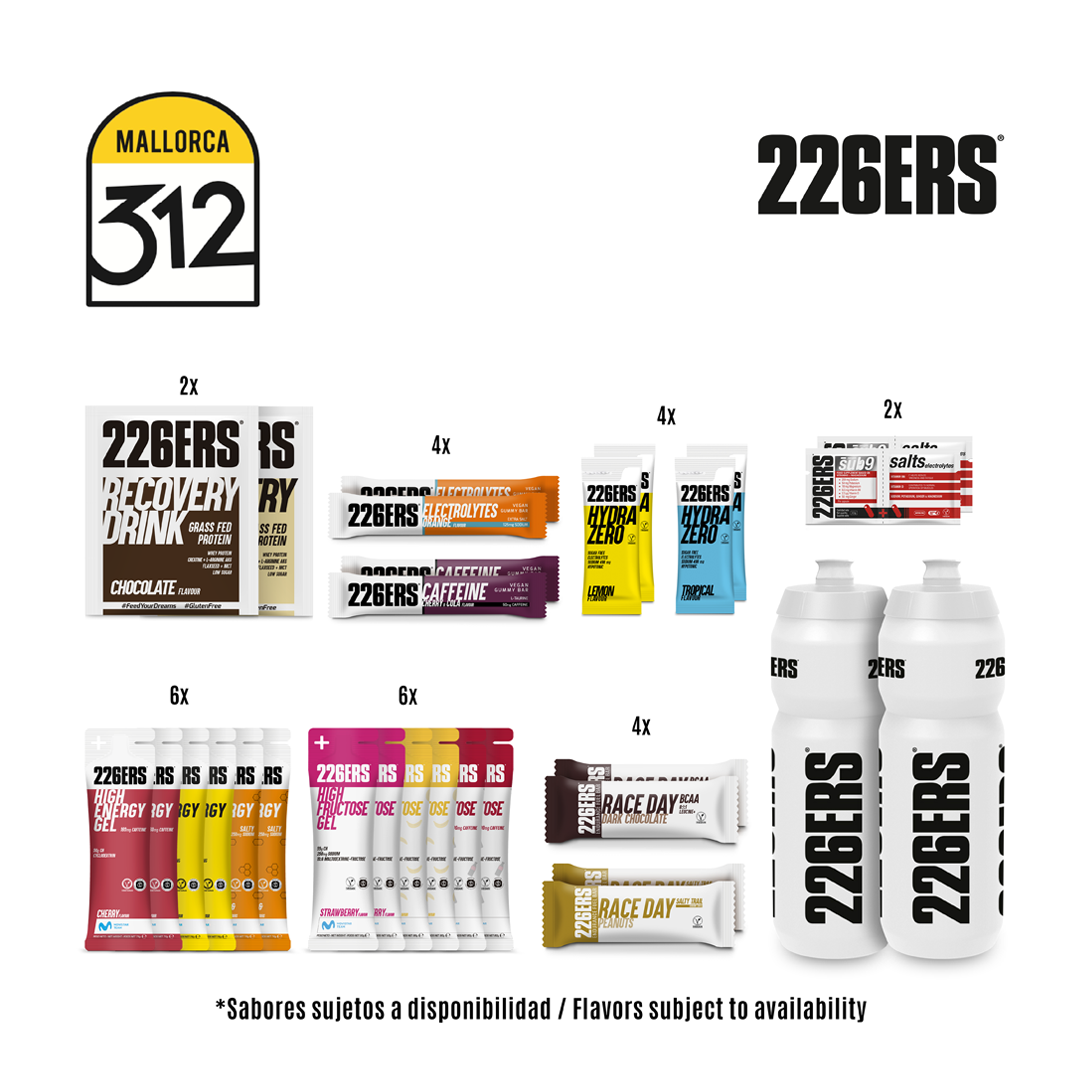What to eat before, during and after the trail running.
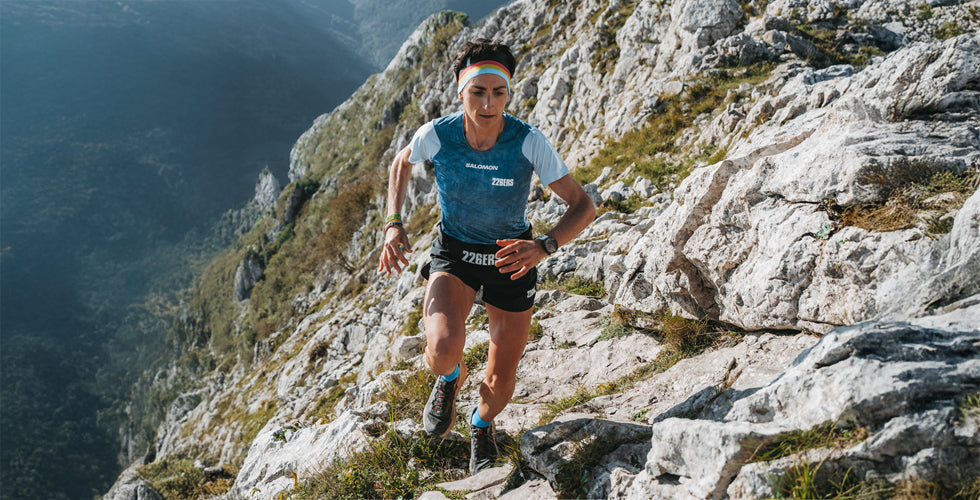
The trail running is a resistance sport based on the race on foot due to natural environments with very variable distances, which can range from 1-2-hour tests to ultra marathon tests of several days "non-stand". This makes nutritional needs, both for training and competition are very different depending on distance.
However, there are common and recommended aspects that will be discussed in this article, to guide the “trail runners” for both their preparation and competition.
Nutrition to train trail running
One of the questions that these athletes can be asked is if there is any type of diet for mountain runners. The answer, although broad and with nuances, if it can be given. It is advisable to follow an ideal varied diet for resistance sports, and adapt it day by day based on training needs, which is known as nutritional periodization.
But, exactly, What is food for trail running? At macronutrient level, it must contain approximately a number of protein of 1 and 2 gr / kg of body weight, depending on the level of the athlete and the training load. And most importantly, that this protein is ingested regularly and constantly every 4-6 hours, that is, a small dose for breakfast, a mid-morning snack, food, mid-afternoon snack, dinner and a pre-cut if dinner is very soon.
Recommended foods to meet these needs would be eggs, meats and grilled fish, dairy or even protein milkshakes, recovery drink or protein bars for those snack between hours or to ingest post training or pre -bed.
Regarding the daily amount of carbohydrates, Perhaps the best option is a variable figure depending on the type of training, prioritizing a low carbohydrate diet (3 gr / kg weight) for low intensity days, along with a high diet in carbohydrates (7 gr / kg weight) for those days of high intensity or half intensity but quite long. For “normal” or intermediate days, an average diet can be used in carbohydrates with 5 gr/ kg weight.
The recommended foods are very varied, from legumes, whole grains, potatoes and tubers, fruits and vegetables for middle and low carbohydrates, to pasta, bread and rice to meet the greatest needs of high days in carbohydrates. Another option can also be the average diet in carbohydrates for trail running out of training, but cover the extra needs of this macronutrient with an intake of gels, bars and isotonic drinks during training, as will be explained later.
Finally, the mountain corridor must cover their energy needs once the necessary amounts of protein (always fixed) and carbohydrates (depending on the training intensity) with Fats. In this case, "healthy" fats are recommended, such as olive oil, nuts and seeds, avocado, blue fish, also rich in protein.
Nutrition during Trail Running training
A very important part that should not be neglected, is how food should be during training. Well, Is it necessary to eat food and drink during Trail Running training? Because?.
The answer is "It depends on the objective and type of training" and always in order to optimize adaptations, improve performance and maximize recovery.
Thus, in low intensity training, carbohydrate intake may not be necessary, being able to reach quantities of 0-30 grams at the time if the training is very long (+ 2.5 hours) or it is sought to train the digestive system so that it is able to tolerate liquids and food during competitions.
For medium and / or intense training, amounts of carbohydrates can rise to the fork of 30-90 grams hour, depending on the duration of training, intensity and tolerance of the athlete to the intake.
In these cases it is recommended to use the same products that will be used in competition, to cover this “nutritional training” so necessary and attending to the logistics of transport and product availability. Gels would be the most recommended product when carbohydrate intakes are high and energy isotonic drinks when hot environmental conditions demand a greater need for liquids.
Finally, we must not forget post -training recovery, especially after demanding training. An intake of fruit, natural yogurt or sandwich / wrap of tuna or egg can be an excellent post -training recovery, such as a yoghurt with oatmeal and red fruits, as long as the main food of the day does not occur after training. In cases of difficult access or impossibility of preparation of these foods, the use of a recovery drink can be an alternative.
Hydration during Trail Running training
Access to liquids during career training, and even more so if it is for the mountain, it can be difficult. This can cause considerable dehydration, especially if the duration of training is quite long. Therefore, a recommendation in this regard would be that the corridor does not lose more than 3-4% of his body weight during his training.
If this happens the hydration during it has not been sufficient, either due to hot climatic conditions and / or with moisture or by the duration / intensity of the training. In that case, it is suggested to look for strategies to have access to liquids during training (hydration backpacks, soft flask, drums in strategic places, etc.) with water or isotonic drink (if carbohydrates are needed) so that the athlete does not lose that indicated weight (approximately 2 kg for a person of 70 kg).
Nutrition for Trail Running competition
The day of the competition arrives, where all the work must be done, both at the level of training and preparation and at the nutritional level and body composition. However, small details can ruin or even maximize performance in the competition. Therefore, how should the pre -trail breakfast be? What to eat during a trail?
The first golden rule is, Do not experience anything you have not tried before. In this way the best recommendation is to have breakfast and eat or supply with food and products that your body has become familiar during the preparation phase.
The previous 2-3 days is recommended a high diet in carbohydrates and low fiber. Rice, pasta, potatoes, cereals, bread, accompanied with meats, grilled fish and / or eggs in their different forms to cover protein needs can be a good option, complementing it with 2-3 pieces of fruit per day.
The breakfast prior to the competition must contain protein, which in this case to favor digestion can be used to a protein shake (whey / isolate) together 1-3 gr of carbohydrates per kg of weight. For this there are several options such as cereals, bread, bananas, honey, jam or even baby porridge.
During the test, the key will be the continuous contribution of carbohydrates in quantities of 60-90 grams and liquids. For this, gels and energy drinks can be used as tested in previous training and competitions.
For ultratrail or longer tests, where the intensity is lower, "natural" foods can be used as an alternative to so many gels. Wife fruits for ultra tests or dehydrated fruits can be a good plan for its high caloric density and the little space they occupy to transport them. Also some protein bar would be recommended for its satiating power and to contribute amino acids after several hours of competition.
Finally, do not forget about post -effort recovery. Starting with a recovery drink, fluid and fruit intake can be the ideal when the stomach is closed post -test. The following main meals, rich in carbohydrates (pasta, rice) with quality protein and antioxidants (varied fruits / vegetables of different colors).


